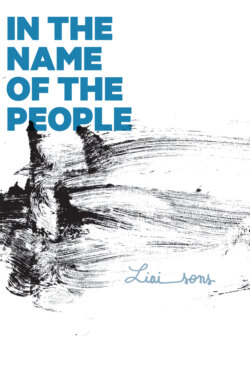Читать книгу In the Name of the People - Liaisons - Страница 23
На сайте Литреса книга снята с продажи.
OTHER HISTORIES
ОглавлениеIn retrospect, it seems the movement failed to find a way to oppose the rising populist imperialist consensus, both in Russia and in Ukraine. And for this not only our weakness, but also the way we have defined priorities in these last years, is to blame.
Too busy fighting fascists and Nazis in the street, we did not develop a solid analysis of what fascism is, nor did we propose an alternative to the official history of World War II, which seems to haunt us at every turn. At the level of rituals and symbols, we finally followed the version advanced by the Russian state—the myth of the unity of the Soviet People against fascism. The narratives about other forces that confronted both Stalinism and Nazism—like those of the partisan movement that rejected the rule of the Red Army—have become marginal. We have likewise paid too little attention to the conflicts of peasants and workers against Stalinism, or to the Gulag insurrections during the war.
On the other hand, we also must rethink the colonial character of the Russian and Soviet empires. Armed conflicts in distant places have so easily been forgotten. Even the war in Chechnya, which was important for anarchists in the 1990s and at the beginning of the 2000s, was forgotten by the next generation. We are in dire need of internal structures that allow us to transmit such experiences and their lessons.
In this light, it’s not surprising that the explosion of war in Ukraine took us by surprise. We have not fully taken account of the fact that Russia is always at war somewhere, in some part of the world. And now this war knocks at our own door, and threatens our comrades and neighbors. It attacks our friends. We no longer know what common ground can establish connections between our movements, especially at the moment we need it most.
It seemed to us, as Russians and Ukrainians, that we almost lived in the same space, with a close past and present. We shared our experiences and resources in our struggle against common hardships. Yet when our states plunged us into war, feeding off the myths of our common past, we didn’t know how to resist. The more they try to mobilize the dead to divide us, the more we should show that history can’t be reduced to what is written by the victors. We ourselves have histories to tell—a story beyond imperialist myths, however they’re assumed—because only revolutionary history will keep us warm during this long winter.
1. Followers of Nestor Makhno, the commander of the Revolutionary Insurrectionary Army of Ukraine, also known as the Anarchist Black Army, who led a guerilla campaign in southern Ukraine against other factions seeking to exercise authority over the territory (Ukrainian nationalists, and German and Russian forces).
2. Berkut is the most brutal unit of the Ukrainian riot police.
3. Also referred to as the Great Patriotic War, the Great Fatherland War is a literal translation of the name given to the part of World War II that was fought in the Soviet Union.
4. This song, “What We Feel,” was composed by the band Till the End, and features the band Moscow Death Brigade.
